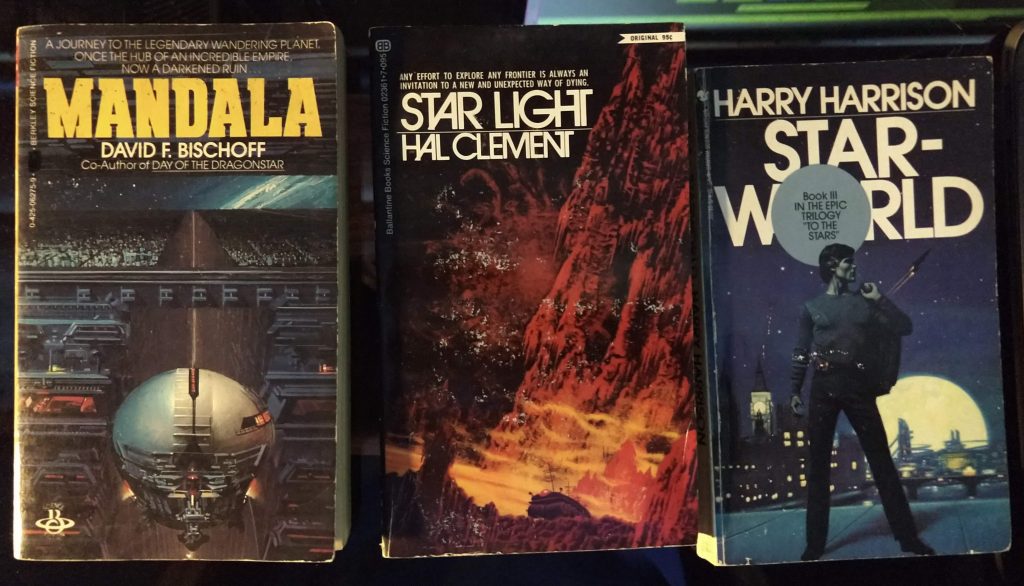Updated 19 Jan 2020 (Star Light)
Updated 4 Aug 2021 (Starworld)

Visited Mostly Books while in Philadelphia the weekend of Lisa’s b-day. It’s like walking through an old house of a book hoarder. Stacks and stacks! Went looking for the books I spotted randomly at the bar Writers Block Rehab the previous night (The Infinite Man and The Lonely City, they had several shelves on display) and ended up just going with another set of sci-fi.
Updated 4 Aug 2021 (Starworld)
Good, if a bit rushed space opera that maybe would have benefitted if I had read the first two in the series. Colonist/farmer returns to a despotic Earth to free the universe from its exploitative rule; all planets and colonies are in current rebellion. The colonist drops into an information-deprived Earth whose citizens know little about the span of the rebellion, some who hope to rebel themselves. There are deep dives into racist America, hints at Iron Curtain-like oppression, and an Israel that plays a key role as an isolated pocket of freedom. Yes, this book is a product of its time and, let’s say, Has Some Opinions.
My (so far) final act of Johnny Appleseed-ing books at random locations around the world, I left this in the Little Free Library in front of the Midtown Marta station. More mundane than a Vespa seat in Sydney or a hospital in Curacao, but the fact that it was gone the next day was the first instance where I observed appreciation for my Guerilla Distribution Network. A fitting end (so far…).
Continue reading Three pulp sci-fi novels (set #5)